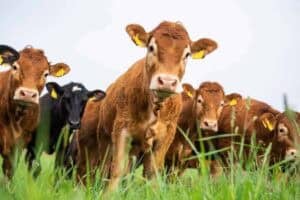Matebogo Victoria’s cooperative at Bekkersdal Agripark empowers the deaf community with farming jobs.

The Bekkersdal Agripark in Randfontein is home to five cooperative farming groups, including the Voice Out Deaf Cooperative, led by Matebogo Victoria, a female entrepreneur with a hearing disability.
The cooperative is dedicated to creating employment opportunities for the deaf in the region.
Victoria said her innovative approach was proving that barriers could be overcome and lives transformed through meaningful employment and inclusive practices.
“I started the cooperative after noticing how many deaf people and those with disabilities were lacking opportunities,” she said.
Deaf or disabled people lack opportunities
Victoria’s cooperative focuses on cultivating tomatoes, lettuce and spinach.
Despite facing significant challenges, including limited resources and a lack of information, her hands-on learning approach and support have empowered her team.
ALSO READ: Limpopo premier’s avocado beauty regime
“The biggest challenge we face is the lack of access to information for the deaf community. Unlike hearing people, they miss out on opportunities because they don’t hear about them. I try to gather and share information directly, making it easier for them to learn and grow,” she said.
“I am committed to breaking down societal barriers and empowering my team. Most deaf people are not working, so I hire as many as I can to help them learn about business and self-sufficiency.”
Thabang Legabe, a 25-year-old employee who joined the cooperative last year, reflected on his journey.
“Before joining, I had no experience in farming and was not interested in tailoring. When I heard about farming, I became interested and learned quickly,” he said.
‘I feel seen and heard’
“I finally feel seen and heard because I am working and able to provide and support my family. I also have skills now that I have acquired in farming and know what I specialise in.”
His responsibilities include digging, sowing and watering plants.
ALSO READ: Fresh produce: Competition Commission says action will ‘address distortions’
“Because of Victoria I now have ideas and dreams of growing new crops, but sometimes the seeds or resources aren’t available. I have to focus on what we have,” he said.
Other farmers at Agripark took their concerns and challenges to Gauteng MEC for agriculture and rural development Vuyiswa Ramokgopa.
“Our main concerns are water and electricity. We can’t run our farms without these two basic needs. Our cattle and food get stolen because we don’t have security for safety,” said one farmer.
“We don’t have enough resources to keep our farms operating. Some of us have had to sell our sheep to pay our workers. The department has never been responsive to our concerns.”
Ramokgopa acknowledged the challenges and outlined her commitment to addressing them.
Agriculture has smallest budget
In addressing concerns about the budget and departmental efficiency, she noted that agriculture had the smallest budget compared with other departments.
ALSO READ: Steenhuisen’s Agricultural Master Plan sparks concerns, farmers call for consultation
“It is not just about the amount of money we have. It is about how wisely we use it.
“We will ensure transparency and accountability in our spending,” she said.
“Red tape is a serious issue and we are working to make the department more responsive and efficient. Communication and responsiveness are key commitments.”
Impact beyond agriculture
Victoria’s said her cooperative’s impact extended beyond agriculture, fostering significant social change.
“I also motivate and train my community to not depend on the government, but to use their hands and start farming, too.
“We sell our vegetables to retailers like Pick n Pay and various vendors in the Western area. Despite some capacity issues, we’re managing to meet demand and continue to expand.”
ALSO READ: Free State farmers, cops join up to fight livestock theft






